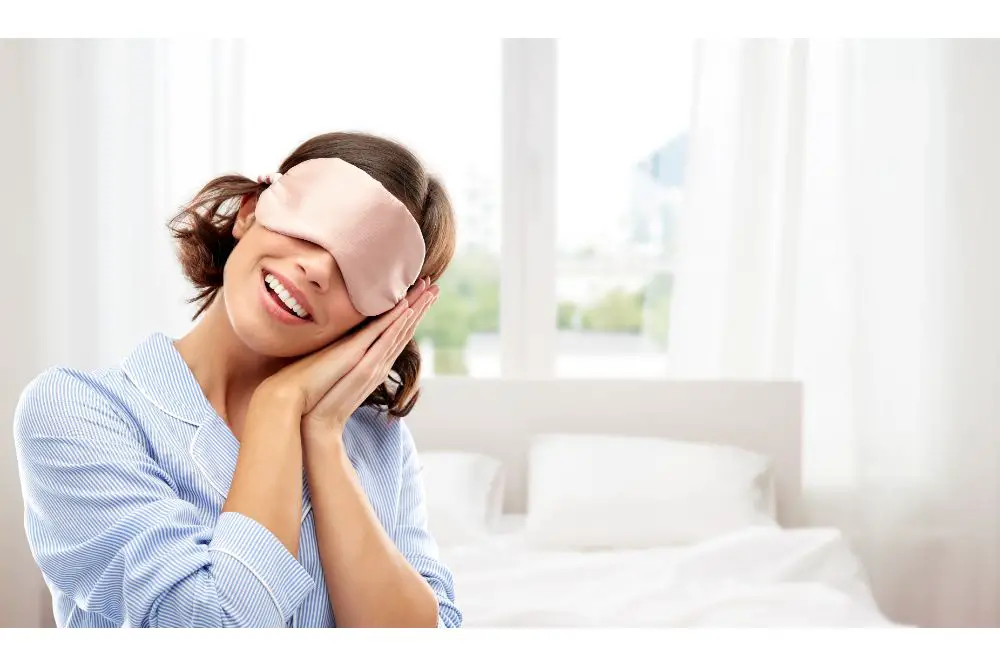As a BetterHelp affiliate, we receive compensation from BetterHelp if you purchase products or services through the links provided
Stress and anxiety are a part of life. There’s no escaping it. And both can affect whether or not you get a good night’s sleep. Discover how you can turn stress and anxiety into a positive thing instead of something negative and how to sleep when stressed or anxious.
What are Stress and Anxiety?
A lot of people experience anxiety and stress at certain times. Stress is a result of a demand put on your body or brain. It can be triggered if you feel nervous or frustrated.
Anxiety is a feeling of unease, worry, or fear. Sometimes, the person is unable to identify the stressor that is causing the anxiety. Dress and anxiety aren’t always necessarily bad things. Both can help you survive a dangerous situation or even complete a task.
Some of the common causes of stress and anxiety include taking an exam, public speaking, and having a job interview. Basically, stress and anxiety are a part of everyday life.
Sleep Anxiety Symptoms
There are a wide variety of sleep anxiety symptoms. One may even experience more than one symptom when trying to fall asleep. Symptoms of sleep anxiety include:
- Stomach problems
- Night terrors or nightmares
- Difficulty falling asleep and staying asleep
- Difficulty with concentration
- Twitching
How to Relax Before You Go to Bed
It can be difficult to transition both the body and mind from an active day to sleep. Establishing a routine before sleep can help prepare you. It’s helpful to establish a routine 30 – 60 minutes before your bedtime.
This routine can include things like reading a book, listening to music, taking a warm bath, watching a movie on tv, or meditating. Make sure your routine is comprised of activities that are relaxing for you. Doing this will help your mind and body make the transition to sleep.
Ten Tips on How to Sleep if You are Feeling Stressed and Anxious
- Focus on what is within your control
During the day, focus on what is in your control. Identify tools to help you do this, such as mindfulness.
- Eat healthy foods
Junk foods increase body inflammation and make it difficult to sleep. Healthy foods cause a good body reaction.
- Exercise
Exercise releases feel-good endorphins to help manage stress and anxiety. Its also an effective way to reduce those negative thoughts nagging away at you. Do deep breathing exercises and muscle relaxant exercises.
- Reframe your thoughts
Get rid of those cognitive distortions and reframe your thoughts. Stop focusing on the negative things and say good-bye to all or nothing thinking.
- Practice self-compassion
Give yourself some loving with self-compassion. That strong inner critic is always harder on yourself than on friends and loved ones. Dont be hard on yourself if you make a mistake. Treat yourself with kindness.
- Develop a mantra
Find a mantra that resonates with you and repeat it to yourself. Keep it simple. Make it no more than three sentences. Saying your mantra will help you keep things in perspective.
- Develop a nightly routine
Sticking a consistent nightly routine will train your brain to know it’s time to shut down. It cues the brain to unwind.
- Make lists
Make lists of what you have to do the next day. Put it down on paper. This way, your brain knows it doesn’t have to hold on to all that information.
- Turn off devices
Even with the light on your phone, your body can be robbed of melatonin.
- Avoid stimulants
Tobacco, alcohol, and caffeine are all stimulants that disrupt sleep. Do not use them before sleep.
Are There Any Supplements I Can Take Before I Go to Sleep?
There are plenty of over-the-counter meds to help you sleep. You just don’t want to wind up having to rely on them all the time. You can always try taking melatonin supplements. They are both natural and safe.
Summary
Sleep is very important for good health and good performance in life. Lack of good sleep can lead to a bevy of health problems like cardiovascular and depression. And stress and anxiety just make getting a good night’s rest even more difficult.
It’s very important that you develop effective coping strategies for dealing with stress and anxiety in your life. And with the proper sleep, your coping mechanism will be stronger to deal with the stress and anxiety of everyday life.
Some people do better talking it out with others. If you’re one of those, consider joining a self-help group or seeing a certified counselor. They may be able to give you some new strategies on how to cope with stress and anxiety. This way, you will be able to catch those Zzz’s that you need.
Whether you do it on your own or with the help of others, your mind and body will thank you. Take effective action today. That’s the first step to getting a healthy night’s sleep.
- 3 Ways Wearing a Hat Can Help Lower Your Stress Levels - April 19, 2025
- Breaking the Silence: Why Men’s Mental Health Matters More Than Ever - April 15, 2025
- How to Transform a Home’s Patio Space into a Relaxing Space - March 23, 2025
This site contains affiliate links to products. We will receive a commission for purchases made through these links.



